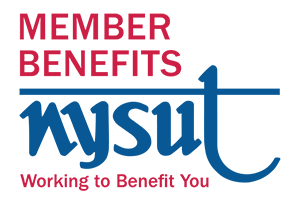Probationary Period
During the four year probationary period (three if previously tenured in another place), you have
few rights. The right to speak your mind is limited and all rules and procedures must be
followed. You do not have Cadet Rights during this period.
Tenure
Having tenure means that you have the right to due process in order for your employer to bring
about disciplinary charges against you. You also have “Cadet Rights” which is the right to
remain silent when being questioned by an administrator in a disciplinary proceeding. Civil
Service employees and non-tenured employees do not have Cadet Rights and must answer all
questions. Failure to do so is considered insubordination.
Cadet Rights
This is the right of a tenured employee to remain silent when being questioned in a situation
that may lead to discipline. Civil Service and non-tenured employees do not have this right.
RVF Representation
In any situation where you don’t feel comfortable, it is your right to request union representation.
It is your choice which Building/Unit Rep you call.
Your Contract
You have the right to the terms and conditions in your contract. If you suspect a violation, please
contact your Building/Unit Rep or the RVF Grievance Chair.
Bereavement
In the event of the death of an immediate family member, you have the right to 5 bereavement
days per event. Check your contract for specific language regarding bereavement days.
Class Size
As a K-1 teacher, you have the right to class size of 23 students or less. As a grades 2-6 teacher,
you have the right to a class size of 26 students or less. As a grades 7-12 teacher, you have the
right to 30 students or less in each class, with a maximum student load of less than 125.
Jury Duty
In the event that you get a summons to Jury Duty, Rondout Valley Central School District will
not take your sick and personal time. As a public employee, you have the right to jury duty days
without losing your accrued sick and personal time.
Personal Days
It is your right to use personal days in order to conduct business. It is recommended that on the
Request for Leave forms under “Reason” that all RVF members write, “Business that can only be
conducted during school hours.”
Early dismissal due to inclement weather
In the event of an early release from school, members in the Teacher Contract may leave school
ten minutes after the departure of busses.
Leave of Absence
You are entitled to unpaid leave. Check your contract and see your Building Rep for more
information on how to apply for these days.
Maternity Leave
In New York State, maternity leave is covered under FMLA and the New York State Maternity
Leave Law (PFLL). FMLA allows for unpaid leave after welcoming a new child through
childbirth, adoption, or foster care. Under the New York State Maternity Leave Law, you may be
eligible for up to eight weeks of paid leave.
Maternity Paternity FAQ Document
FMLA
The Family and Medical Leave Act of 1993 (FMLA) is a United States labor law requiring
covered employers to provide employees with job-protected and unpaid leave for qualified
medical and family reasons.
Mentor
If you are non-tenured and feel you need a mentor, the RVF can help. Contact your Building Rep
for more information.
Family Sick Day Donation
Article 13.2E of the Teacher Contract, Article 4.8 of the Paraprofessional Contract, and Article 6.8 E of the Clerical Contract allow members to contribute accrued sick days to another member in need of family sick days and/or maternity/paternity days.
Family Leave Day Donation Recipient Application
Family Leave Day Donation Donor Application 2022
EAP
Employee Assistance Programs (EAPs) are employee benefit programs offered by the RVF for
our members. EAPs are intended to help employees deal with personal problems that might
adversely impact their work performance, health, and well-being. This can include mental health,
alcoholism, and other family issues. EAPs generally include assessment, short-term counseling
and referral services for employees and their household members. It is important to note that all
contact and use of EAPs by employees are strictly confidential and benefits differ from plan to
plan.
Taylor Law
Before the Taylor Law was enacted, public employees in New York had no legally recognized collective
bargaining rights. Under the Condon-Wadlin Act, a 1947 law that the Taylor Law replaced, striking public
employees were penalized by being fired. They could only be reinstated under a three-year pay freeze and five-year probation. The Public Employees’ Fair Employment Act (Taylor Law) was enacted in 1967 following a series of public-sector strikes, including the 12-day New York City transit strike a year earlier. The state Legislature granted amnesty to the striking employees, and Gov. Nelson Rockefeller appointed a committee to recommend legislation regarding public-sector employee rights. The result was the Taylor Law.
Weingarten Rights
Both tenured and non-tenured employees have Weingarten Rights. Your Weingarten Rights resulted from a Supreme Court ruling on union representation. During any investigation, you may ask for a union representative to be present. The employer must either provide you with your representative or end the meeting. If you are refused representation, you should immediately contact your Building or Unit Representative, or an RVF Officer, as this constitutes an unfair labor practice.

